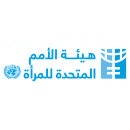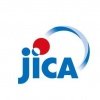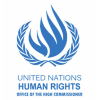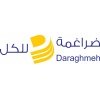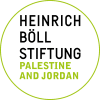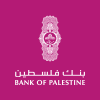Capacity Building Trainings to Stakeholders within the Justi...
Background information on the project:
UN Women, grounded in the vision of equality enshrined in the Charter of the United Nations, works for the elimination of discrimination against women and girls; the empowerment of women; and the achievement of equality between women and men as partners and beneficiaries of development, human rights, humanitarian action and peace and security. Placing women’s rights at the center of all its efforts, UN Women leads and coordinates United Nations system efforts to ensure that commitments on gender equality and gender mainstreaming translate into action throughout the world. It provides strong and coherent leadership in support of Member States’ priorities and efforts, building effective partnerships with civil society and other relevant actors.
UN Women plays an innovative and catalytic role in the State of Palestine since its inception in 1997. UN Women Palestine Office focuses its activities on one overarching goal, namely, to support the implementation at the national level of existing international commitments to advance gender equality in line with the national priorities. In support of this goal, and thoroughly taking into consideration the specificities of the Palestinian context, UN Women concentrates its efforts and interventions toward the realization of following strategic goals: Mainstreaming gender in governance, peace and security; Supporting women's economic security and rights; and Promoting women’s rights and protection against violence.
In line with the Palestinian Government’s commitment to achieve gender equality and to fight Violence against Women (VAW), and in full partnership with the Justice and Security Sectors, including the Public Prosecution (PP), the Palestinian Civil Police (PCP), the High Judicial Council (HJC) and the Supreme Judge Department (SJD), UN Women, within its joint programme with UNDP and UNICEF - “Promoting the Rule of Law in Palestine- SAWASYAII” is supporting the Justice and Security institutions to mainstream gender in their procedures and policies, and develop and provide gender responsive services to women victims and survivors of violence, through providing institutional capacity building support and policy level interventions, amongst others.
Strengthening the capacities and increasing the knowledge of partner institutions within the justice, security and social sectors go hand in hand with SAWASYAII programme fourth outcome which focuses on enhancing women’s access to justice and security. As per the programme’ s plan of 2022, several capacity building interventions were identified and agreed upon with partners institutions, including the Attorney General Office (AGO), the HJC, the PCP, the SJD, and the Ministry of Social Development (MoSD).
Against this backdrop, UN Women SAWASYAII programme plans to select a company to develop and deliver capacity building trainings to chief prosecutors, prosecutors, Judicial Inspection Department at the AGO, VAW judges, judges, family prosecutors at Sharia courts, Sharia court judges, Family and Juvenile Protection Units at the PCP , and MoSD counsellors.
Objectives of the Assignment include the following:
To develop capacity building trainings in the areas of women’s rights, gender justice, violence against women, and others, as described in the scope of the work.
To deliver a total of 45 capacity building training days targeting the AGO/ PP, the HJC, the SJD, the MoSD, and the PCP.
Scope of the work:
Attorney General Office/ Public Prosecution:
To provide 4 days capacity building training to the Chief Prosecutors on VAW responsive services and Family Prosecution Standard Operating Procedures.
To deliver two sets of awareness workshops (2 days each) on VAW, and women’s rights, targeting 20 prosecutors in each set.
To deliver 2 days awareness and sensitization sessions targeting the Judicial Inspection Department at the Attorney General Office on VAW, gender justice and the Family Prosecution SoPs.
High Judicial Council:
To provide 4 days capacity building training to VAW judges on the Risks Assessment Templates, the National Referral System and VAW SoPs.
To deliver 4 days awareness and sensitization sessions to the newly assigned VAW judges on women’s rights, gender justice, responsive adjudication and VAW SoPS.
To deliver two sets of awareness workshops (2 days each) on VAW, and women’s rights, targeting 20 judges in each set.
The Supreme Judge Department:
To provide 2 days capacity building training to the family prosecutors at Sharia courts on responsive prosecution services to women.
To provide 4 days awareness and capacity building training to sharia court judges on Constitutional Judiciary and Procedures for Liaison with the Constitutional Court
To provide 2 days awareness sessions on women’s rights, and violence against women to sharia court clerks, and lawyers.
The Ministry of Social Development:
To provide 8 days training to the Social Protection Counsellors at the MoSD on responsive counselling services to women victims and survivors of violence.
Multi- sectoral service providers:
To provide 4 days capacity sessions for police offices from the Family and Juvenille Protection Units (FJPUs) at the PCP, and social workers at the MoSD on topics related to initial contact with women victims of domestic violence; safety and portection measures; coordination between justcie and secuirty sectors and others as relevant.
To provide 3 days capacity building sessions for service providers from the FJPUs, MoSD counsellors and the Family Prosecution (the teams of the OSC in Hebron and Nablus) on consolidated services for women victims and survivors of violence.
Deliverables:
Inception report that includes the work plan, time frame, and methodology.
Successful completion of 30 training days along with narrative reports on each training, including pre and post assessment analysis. Training material should be annexed.
Successful completion of 15 training days along with narrative reports in each training, including pre and post assessment analysis, in addition to the assignment ‘s final narrative report. Training material and list of trainees should be annexed.
MINIMUM REQUIREMENTS:
Capacity Building Team Leader:
A Master’s degree in law, gender, human rights, or any other related field
At least 3-5 years’ experience as a Capacity Building Team Leader
At least 3 years’ experience in the areas of gender, women’s rights and gender justice
At least 4 years of experience in the areas of management, coordination, and reporting
Previous experience in working with SPSS is an asset
Project Team Member(s):
3 Trainers that have at minimum the below qualifications:
A BA degree in gender, law, sociology or any other related field
At least 3 years of experience in areas related to gender justice, women’s rights, and violence against women
Qualified trainers with at least 10 years of progressive capacity building delivery experience to national partners including government
Previous experience with the justice, and / or the security and the social sectors is an asset.
Copy of CVs are required for both; Team leader and Trainers
At least 5 years of experience in areas related to gender justice, women’s rights, and violence against women
At least 6 years of professional experience in areas related to capacity building and training
At least 3 previous working experience with the justice, security, and social sectors
A sample of a previously developed and implemented training programme
Two samples of previously developed training reports
Subcontracting:
The vendor is strongly encouraged not to sub-contract > 50% of the total work. If a vendor/s intend to do so, they must state the actual percentage (that will be outsourced) in their offer/quotation.




